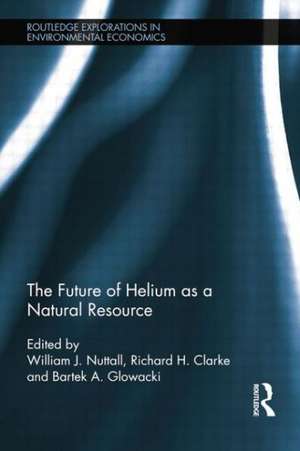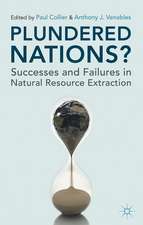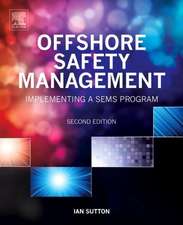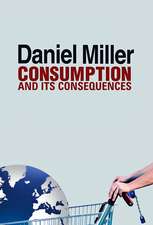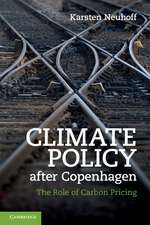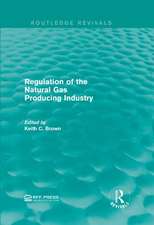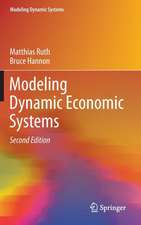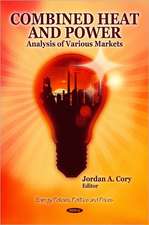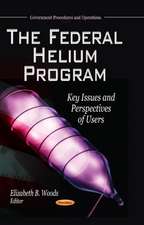The Future of Helium as a Natural Resource: Routledge Explorations in Environmental Economics
Editat de William Nuttall, Richard Clarke, Bartek Glowackien Limba Engleză Paperback – 28 mar 2014
| Toate formatele și edițiile | Preț | Express |
|---|---|---|
| Paperback (1) | 469.94 lei 6-8 săpt. | |
| Taylor & Francis – 28 mar 2014 | 469.94 lei 6-8 săpt. | |
| Hardback (1) | 827.23 lei 6-8 săpt. | |
| Taylor & Francis – 26 apr 2012 | 827.23 lei 6-8 săpt. |
Din seria Routledge Explorations in Environmental Economics
-
 Preț: 311.58 lei
Preț: 311.58 lei -
 Preț: 311.18 lei
Preț: 311.18 lei -
 Preț: 314.71 lei
Preț: 314.71 lei - 28%
 Preț: 823.26 lei
Preț: 823.26 lei - 18%
 Preț: 1053.92 lei
Preț: 1053.92 lei -
 Preț: 424.58 lei
Preț: 424.58 lei - 15%
 Preț: 431.75 lei
Preț: 431.75 lei - 17%
 Preț: 289.78 lei
Preț: 289.78 lei - 18%
 Preț: 1403.97 lei
Preț: 1403.97 lei - 28%
 Preț: 827.23 lei
Preț: 827.23 lei -
 Preț: 329.92 lei
Preț: 329.92 lei - 18%
 Preț: 1223.61 lei
Preț: 1223.61 lei -
 Preț: 420.30 lei
Preț: 420.30 lei - 28%
 Preț: 848.93 lei
Preț: 848.93 lei - 18%
 Preț: 1272.54 lei
Preț: 1272.54 lei - 28%
 Preț: 797.37 lei
Preț: 797.37 lei - 18%
 Preț: 1288.46 lei
Preț: 1288.46 lei -
 Preț: 416.05 lei
Preț: 416.05 lei -
 Preț: 279.72 lei
Preț: 279.72 lei -
 Preț: 378.43 lei
Preț: 378.43 lei - 18%
 Preț: 1286.01 lei
Preț: 1286.01 lei -
 Preț: 422.04 lei
Preț: 422.04 lei - 18%
 Preț: 1061.93 lei
Preț: 1061.93 lei - 18%
 Preț: 1060.25 lei
Preț: 1060.25 lei -
 Preț: 493.80 lei
Preț: 493.80 lei - 18%
 Preț: 1336.46 lei
Preț: 1336.46 lei - 18%
 Preț: 1065.06 lei
Preț: 1065.06 lei - 26%
 Preț: 821.46 lei
Preț: 821.46 lei - 29%
 Preț: 1022.50 lei
Preț: 1022.50 lei - 18%
 Preț: 1226.37 lei
Preț: 1226.37 lei -
 Preț: 401.14 lei
Preț: 401.14 lei -
 Preț: 418.22 lei
Preț: 418.22 lei - 28%
 Preț: 824.53 lei
Preț: 824.53 lei - 18%
 Preț: 1169.16 lei
Preț: 1169.16 lei - 18%
 Preț: 1380.52 lei
Preț: 1380.52 lei -
 Preț: 485.61 lei
Preț: 485.61 lei - 18%
 Preț: 1285.17 lei
Preț: 1285.17 lei -
 Preț: 398.44 lei
Preț: 398.44 lei - 18%
 Preț: 1067.84 lei
Preț: 1067.84 lei - 15%
 Preț: 303.64 lei
Preț: 303.64 lei
Preț: 469.94 lei
Preț vechi: 552.87 lei
-15% Nou
Puncte Express: 705
Preț estimativ în valută:
89.93€ • 97.65$ • 75.54£
89.93€ • 97.65$ • 75.54£
Carte tipărită la comandă
Livrare economică 22 aprilie-06 mai
Preluare comenzi: 021 569.72.76
Specificații
ISBN-13: 9781138774865
ISBN-10: 1138774863
Pagini: 376
Ilustrații: 159 black & white illustrations, 33 black & white tables, 50 black & white halftones, 109 black & white line drawings
Dimensiuni: 156 x 234 x 23 mm
Greutate: 0.7 kg
Ediția:1
Editura: Taylor & Francis
Colecția Routledge
Seria Routledge Explorations in Environmental Economics
Locul publicării:Oxford, United Kingdom
ISBN-10: 1138774863
Pagini: 376
Ilustrații: 159 black & white illustrations, 33 black & white tables, 50 black & white halftones, 109 black & white line drawings
Dimensiuni: 156 x 234 x 23 mm
Greutate: 0.7 kg
Ediția:1
Editura: Taylor & Francis
Colecția Routledge
Seria Routledge Explorations in Environmental Economics
Locul publicării:Oxford, United Kingdom
Public țintă
Postgraduate and UndergraduateCuprins
1. Introduction Richard H. Clarke, William J. Nuttall and Bartek A. Glowacki 2. A history of the helium industry Bo Sears 3. The US federal helium reserve Joseph B. Peterson 4. Helium in Algeria: pioneering helium extraction from LNG Benjamin Reinoehi 5. LNG: the global liquefied natural gas industry Andrew Flower 6. Helium in Russia Benjamin Hooker 7. India: haressing helium from the Earth's interior Nisith K. Das, Rakesh K. Bhandari and Shri C. Mallik 8. Helium from the air: the backstop Richard H. Clarke and Roger Clark 9. Helium demand: application, prices and substitution Zhiming Cai, Richard H. Clarke and William J. Nuttall 10. The dynamics of the helium market William J. Nuttall, Zhiming Cai, Bartek A. Glowacki, Nikolaos Kazantzis and Richard H. Clarke 11. Closed-cycle refrigeration: minimizing helium demand in cryogenic applications Thomas W. Bradshaw and Trevor Miller 12. Medical imaging: why helium prevails Adrian Thomas 13. Rising to the challenges of constrained helium supply in cryogenic systems for the research market John W. Burgoyne and Michael N. Cuthbert 14. Helium and nuclear fission energy Richard Stainsby 15. Helium and fusion energy Richard H. Clarke and Zhiming Cai 16. Substituting hydrogen for helium in cryogenic applications Bartek A. Glowacki 17. Is there a helium problem? Ways forward Ralph Scurlock and Art Francis 18. The future of helium: policy, molecules and machines William J. Nuttall, Richard H. Clarke and Bartek A. Glowacki
Notă biografică
William J. Nuttall is University Senior Lecturer in Technology Policy at the Judge Business School, at the University of Cambridge, UK.
Richard Clarke is a Cryogenic Process and Helium Specialist at Culham Centre for Fusion Energy, a UK-based research organisation developing fusion as a sustainable, long term energy source.
Bartek A. Glowacki is Reader in the Department of Materials Science and Metallurgy, University of Cambridge, UK.
Richard Clarke is a Cryogenic Process and Helium Specialist at Culham Centre for Fusion Energy, a UK-based research organisation developing fusion as a sustainable, long term energy source.
Bartek A. Glowacki is Reader in the Department of Materials Science and Metallurgy, University of Cambridge, UK.
Descriere
The book reveals the changing dynamics of the helium industry on both the supply-side and the demand-side. The helium industry has a long-term future and this important gas will have a role to play for many decades to come. Major new users of helium are expected to enter the market, especially in nuclear energy (both fission and fusion). Prices and volumes supplied and expected to rise and this will prompt greater efforts towards the development of new helium sources and helium conservation and recycling.
